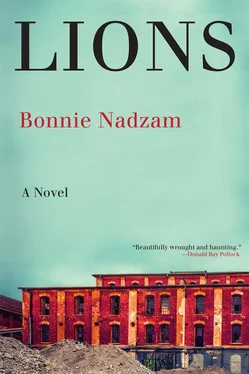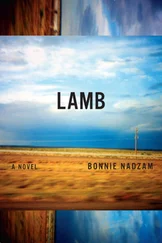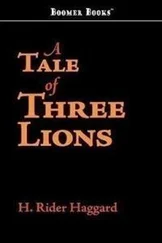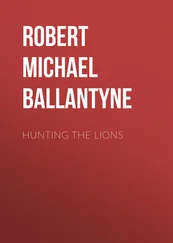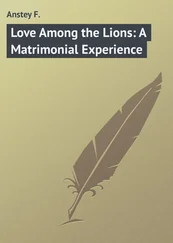He showed the man into the cell with a single cot and toilet. “Warm and dry, anyway. Might rain.”
“It won’t rain.”
The man went in without another word, stepped through the doorway and stopped with his back to Chuck, so that Chuck had to lock the door on him like that.
At midnight, Chuck woke beside his wife in a cold sweat. He started and cried out.
“What is it?” she said, setting her hand on his chest.
He relaxed into his pillow. “Something chasing me.”
“Ohh,” she said, in the tender way she sometimes soothed him, as if he were a child.
He patted the back of her hand with his fingertips and rose.
“Where are you going?”
“Ssh,” he said softly. “Go back to sleep.”
He dressed in the dark and took two cold cans of beer and two pieces of fried chicken wrapped in foil and found the man awake in his cell, sitting on the floor with his back against the wall.
“Howdy.” He stepped inside. “No sleep?”
“Not much.”
Chuck handed him the beers, one at a time, and the man set them on the floor at his knee.
“You never got to drink yours is what I heard.”
“Thanks.”
“Keep you till morning.”
The man said nothing.
“Hungry?” Chuck held out the foil-wrapped chicken.
“Nah,” the man said, but he took it.
“Cold?”
“I’m alright.”
“Well we’ll see you in a few hours then. We’ll get Boyd in here and get it sorted out. Get you on your way.”
“Have you seen my dog? Did someone get her?”
“Your dog?”
“I told the people in the bar.”
Chuck drove around for over an hour. The man was still awake when Chuck returned at three o’clock to say he hadn’t seen her. The man stared at the floor. He never touched the chicken or the beer.
Later that summer, Chuck remembered that he’d found drawings among the man’s things.
“Drawings?” May raised an eyebrow and poured him another short glass of whiskey.
“Like with a pencil,” he explained, setting his hat on the counter. “A woman with long hair. A dog.”
“Were they any good?”
“No.”
Afterward everybody assumed the man had buried the drawings with his dog, because they didn’t find any on him when he turned up again.
When Chuck let the man go in the morning, he spent an hour walking around town, up and down Jefferson Street and in the narrow alley that connected the back lots of the empty stores. His shoulders were hunched inside his long, black coat, which he wore despite the growing heat. He looked even more alarming in daylight than he had in the dim bar — his skin damp with sweat, his dark hair in jagged overgrown slashes across his bony face. He returned twice to the parking lot behind the bar. He cupped his giant hands and called out a name, turning around in a full circle. He whistled up and down Jefferson Street once, then twice, indifferent to the stares from the diner.
In the night, when the man had been locked up, his dog had instinctively returned to the highway to find him. Eventually the man found her there, and he stooped on the side of the highway over the black and white fur.
Probably mistaken for a polecat, people said, black and white like that.
The man sat hunched beside the dog the rest of the morning, his head in one hand, the other on the animal’s neck. John brought him a shovel. The man buried her that afternoon, and disappeared.
A huge dry storm rotated overhead that evening, howling like loose trains and beating the naked plain back to life. When the sun rose the next day, little flowers on long curling stems rose up and opened, spreading like pink smoke over the grass.
Until this particular summer, whenever Gordon wasn’t with Leigh, he was with his father, and they were welding. While everyone else his age was riding bicycles, or playing Little League in Burnsville seventy miles down the highway, or later going to football games and cruising the main strip there, Gordon was being trained.
The work was a convenient excuse for what would have been inexcusable for a boy had he not been so occupied: he didn’t play baseball, football, or any sport; he neither hunted nor fished; he liked to read but disliked school, and he spent most of his time with Leigh, the only other person his age in Lions, who was herself for a long time a scrappy, friendless girl with a blistering case of eczema.
The truth, however, was that he loved the work: the elegant planning and subsequent execution with the plasma cutter, the metal cutting chop saw, the oxy wrench, and especially the Precision TIG 375, which cost John Walker just about a decade’s worth of discounted work to purchase. It was new the year Gordon turned fourteen, a beautiful shining red machine with a built-in water cooler, which meant he didn’t have to wait for the torch to cool, mid-project. He could glide right through weld after weld, so that all the background noise of the highway, the birdsong, the radio music, and the news of the day became part of the finished joint. His father told Gordon once that in his work he must seek a precision of more than mathematical or technical accuracy, alone, and Gordon always felt he was approximating that in summer, using the TIG.
Early summer mornings in the shop were his favorite: green ribbons of prairie sandreed combing themselves through the short yellow wool of last year’s grass, blue fields of new wheat. At seven o’clock he’d haul up the corrugated metal door of the shop that opened to the road, introducing a new silence, deeper than when the door had been closed. Dust motes and gold-dusted moths. Smell of coffee. Above the sheet-metal roofing, looping whistles of orioles and shrikes in the blanched sunlight. Out back his father would turn on high plains radio news. A red Dodge Ram or a long forest green Oldsmobile with shining chrome hubcabs might float past as Gordon stood in the open door. From the Gas & Grocer he might hear voices calling, a car door closing. There was the smell of sheep manure from the farms farther east. Everything moved in slow motion in clear light. He knew the days couldn’t remain so. It was a sort of presentiment, a flash of knowledge in the midst of dread, the medium its very message: none of this will last.
The morning after the stranger disappeared, Gordon’s father had gone north in his truck as he sometimes did for a few days at a time, and left him with two pieces of carbon steel pipe to look over. This wasn’t a real job, John had said, it was just an experiment — insurance against the future. He opened his large hand on the scrap pipe. “Likely more gas and oil pipe in the next few decades, and less irrigation pipe.”
“Jorgensen didn’t plant any wheat,” Gordon said.
John nodded. “There’ll be less and less wheat.”
“What do you want me to do with this?” It was much larger pipe than he was accustomed to working with.
His father had given him an odd instruction, but now Gordon had the shop door open and was doing as he’d been told. He set the pipe in the welding position, and began an imaginary weld, feeling how the electrode would need to move, how his sight lines would change continuously, how the weight distribution and position of his body would adjust themselves as he ran the bead. The line would be straight, but curved. This was difficult. Even without striking the arc, he kept losing his line. He could see why the dry run was important. He wasn’t used to welding pipe this large, and even scrap like this was probably as expensive as it was rare. He stood, brushed off his pants, and turned off the radio. He took a sip of coffee, and returned to the pipe. For a moment he closed his eyes, then held the torch without bracing his arm, and again, bracing his arm.
Читать дальше
